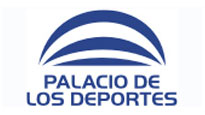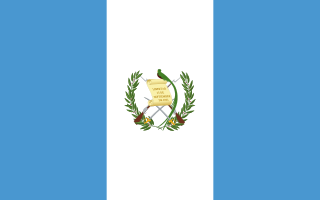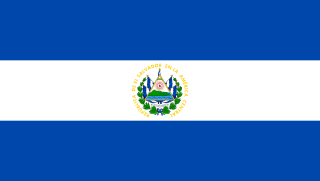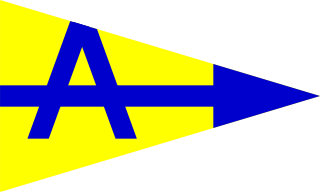The 1968 Summer Olympics, officially known as the Games of the XIX Olympiad, was an international multi-sport event held in Mexico City, Mexico, from 12 to 27 October.

Following a summer of increasingly large demonstrations in Mexico City protesting the 1968 Olympics held in Mexico City, the Mexican Armed Forces opened fire on October 2, 1968 on unarmed civilians, killing an undetermined number, in the hundreds. It occurred in the Plaza de las Tres Culturas in the Tlatelolco section of Mexico City. The events are considered part of the Mexican Dirty War, when the government used its forces to suppress political opposition. The massacre occurred 10 days before the Olympics' opening ceremony.

The men's field hockey tournament at the 1968 Summer Olympics was the 11th edition of the field hockey event for men at the Summer Olympics. It took place over a fourteen-day period beginning on 13 October, and culminated with the medal finals on 26 October. All games were played at the Municipal Stadium in Mexico City, Mexico.
Melvin Pender Jr. is an American former athlete, an Olympic gold medalist in the 4x100 m relay at the 1968 Summer Olympics. He was a member of the Philadelphia Pioneer Track Club where he was coached by Alex Woodley.
Sailing/Yachting is an Olympic sport starting from the Games of the 1st Olympiad in Athens, Greece. With the exception of 1904 and the canceled 1916 Summer Olympics, sailing has always been included on the Olympic schedule. The Sailing program of 1968 consisted of a total of five sailing classes (disciplines). For each class seven races were scheduled from 14 October 1968 to 21 October 1968 off the coast of Acapulco in the Bay of Acapulco. The sailing was done on the triangular type Olympic courses.

Palacio de los Deportes is an indoor arena located in Mexico City, Mexico. It is within the Magdalena Mixhuca Sports City complex, near the Mexico City International Airport and in front of the Foro Sol, in which sports and artistic events are also celebrated. It is operated by Grupo CIE. Opened in 1968, the arena seats 20,000 and the overall capacity is approximately 26,000.

Bulgaria competed at the 1968 Summer Olympics in Mexico City, Mexico. 112 competitors, 102 men and 10 women, took part in 69 events in 13 sports.

Tartan Track is a trademarked all-weather synthetic track surfacing made of polyurethane used for track and field competitions, manufactured by 3M. It lets athletes compete in bad weather without serious performance loss and improves their results over other surfaces. It also provides a more consistent surface for competition even under optimum weather. Such tracks have become the standard for most elite competitions.

The protests of 1968 comprised a worldwide escalation of social conflicts, predominantly characterized by popular rebellions against the military and the bureaucracy.
The 1968 Olympic football tournament was played as part of the 1968 Summer Olympics. The tournament features 16 men's national teams from five continental confederations. The 16 teams are drawn into four groups of four and each group plays a round-robin tournament. At the end of the group stage, the top two teams advanced to the knockout stage, beginning with the quarter-finals and culminating with the gold medal match at the Azteca Stadium on 26 October 1968. This was the first time an Asian team won a medal, Japan claiming bronze.

Czechoslovakia competed at the 1968 Summer Olympics in Mexico City, Mexico. 121 competitors, 94 men and 27 women, took part in 66 events in 14 sports.

Israel competed at the 1968 Summer Olympics in Mexico City, Mexico. 29 competitors, 26 men and 3 women, took part in 20 events in 4 sports.

Guatemala competed at the 1968 Summer Olympics in Mexico City, Mexico. It had been 16 years since the previous time that the nation competed at the Olympic Games. 48 competitors, 47 men and 1 woman, took part in 37 events in 8 sports.

El Salvador competed in the Olympic Games for the first time at the 1968 Summer Olympics in Mexico City, Mexico, from 12 to 27 October 1968.

Echo Summit is a mountain pass over the Sierra Nevada in the western United States, located in eastern El Dorado County, California. At 7,377 ft (2,249 m) above sea level, it is the highest point on U.S. Route 50 in California, which traverses it at postmile 66.48 between Twin Bridges and Meyers, south of Lake Tahoe.
Avándaro Golf Club is a golf course located in the Valle de Bravo state of Mexico. Located 110 mi (180 km) west of Mexico City, it hosted the eventing portion of the equestrian competition for the 1968 Summer Olympics.

Campo Marte is a venue under the administration of the Secretariat of National Defense. It is used for military and government events, as well as equestrian events. Campo Marte is located next to the National Auditorium in Chapultepec Park, Mexico City.

Club de Yates de Acapulco is a yacht club located in Acapulco, Mexico. Opened in December 1955, it served as host of the sailing events for the 1968 Summer Olympics in Mexico City.

For the 1968 Summer Olympics, a total of twenty-five sports venues were used. Most of the venues were constructed after Mexico City was awarded the 1968 Games. Mexican efforts in determining wind measurement led to sixteen world records in athletics at the University Olympic Stadium. All four of the football venues used for these games would also be used for both of the occurrences that Mexico hosted the FIFA World Cup, in 1970 and 1986.
Ralph Hamilton Roberts is a New Zealand sailor and sports administrator.














